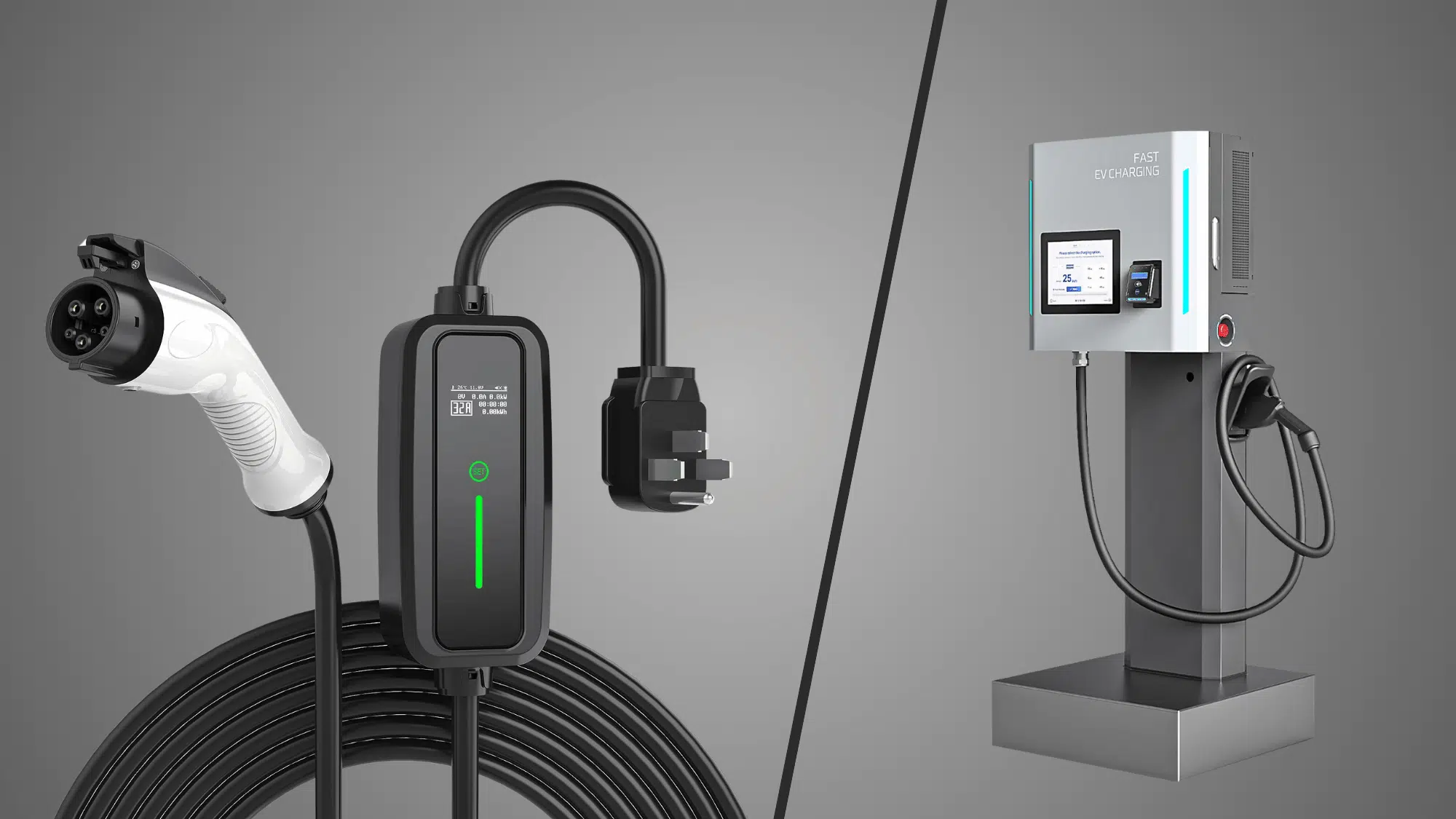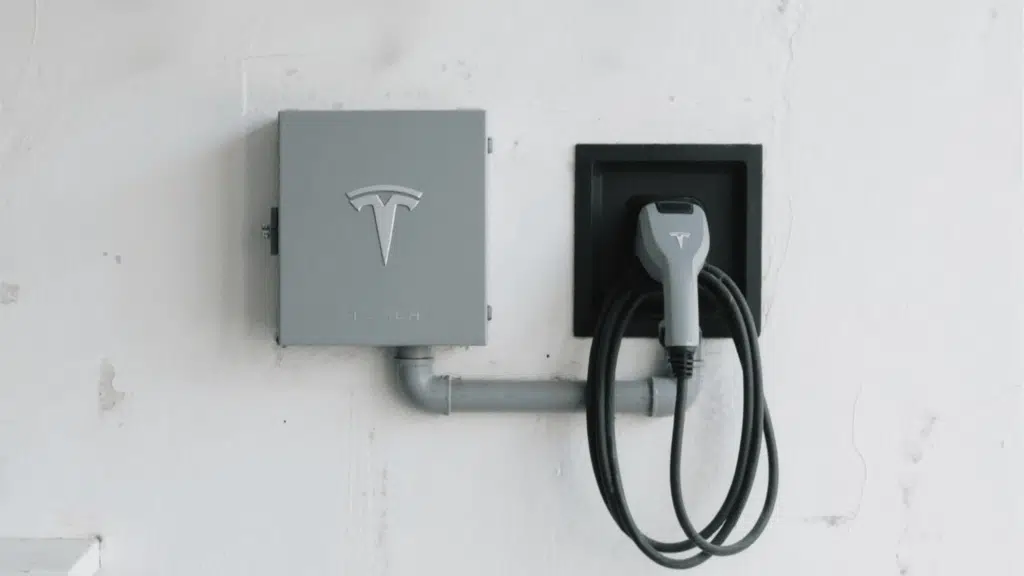Thinking about installing a Level 2 charger at home for your new electric vehicle? The level 2 charger installation cost helps you budget properly and avoid unexpected expenses during the process.
Many EV owners assume they can simply plug their car into a regular outlet, but Level 2 chargers require professional electrical work.
The total expense varies significantly based on your home’s existing electrical setup and local labor rates. Installation costs include the charger unit itself plus electrical upgrades needed to support the higher power requirements.
This breaks down typical costs and factors that influence your final investment in home charging infrastructure.
What Is a Level 2 EV Charger?
A Level 2 EV charger operates on 240-volt power, the same voltage used by large home appliances like dryers.
These chargers deliver significantly faster charging speeds compared to standard 120-volt outlets found throughout most homes. Level 2 units can add 25-40 miles of range per hour of charging, making them practical for overnight use.
The charger connects to a dedicated 240-volt circuit installed by a licensed electrician for safety and code compliance. Most Level 2 chargers draw between 16 and 80 amps, depending on the model and your vehicle’s charging capabilities.
They include safety features like automatic shutoff, weatherproof enclosures, and smart connectivity for monitoring charging sessions.
Average Cost of Level 2 Charger Installation


Image Source: CNET
The level 2 charger installation cost typically ranges from $1,200 to $2,500 for most residential installations nationwide.
This total includes the charger unit itself, which costs between $400 and $1,000 depending on features and brand. Professional electrical installation labor adds another $800 to $1,500 to your final bill for proper setup.
West Coast states like California average $2,000 to $3,000 due to higher electrician rates and stricter building codes. Midwest and Southern states often see lower costs ranging from $1,000 to $1,800 for comparable installations.
East Coast metropolitan areas fall somewhere in between at $1,500 to $2,200 for standard residential projects.
Key Factors that Affect Level 2 Charger Installation Costs
Several variables influence the final price you will pay for Level 2 charger installation, from electrical work to location-specific requirements.
- Electrical panel: Upgrading outdated panels to handle additional amperage adds $1,000 to $3,000 to the total costs.
- Distance from panel: Longer wire runs from the electrical panel to the charging location increase material and labor expenses.
- Wall mounting: Installing chargers on exterior walls or in garages requires different mounting hardware and weatherproofing materials.
- Permit fees: Local building permits and inspections add $50 to $500, depending on municipal requirements in the area.
- Smart features: Advanced chargers with WiFi connectivity, scheduling, and load management cost more than basic models.
Other Chargers vs Level 2 Charger


Comparing different EV charging options helps you understand why Level 2 chargers offer the best balance for home use installations.
| Feature | Level 1 Charger | Level 2 Charger | DC Fast Charger |
|---|---|---|---|
| Voltage | 120V standard outlet | 240V dedicated circuit | 400-800V high power |
| Charging Speed | 3-5 miles per hour | 25-40 miles per hour | 150-300 miles per hour |
| Installation Cost | No installation needed | $1,200-$2,500 average cost | $50,000+ commercial only |
| Home Use | Standard outlet plug-in | Best home charging option | Not for residential use |
| Equipment Cost | $300-$600 for cord | $400-$1,000 for a unit | $30,000+ infrastructure required |
| Electrical Requirements | Standard 15-20 amp circuit | Dedicated 40-60 amp circuit | Three-phase commercial power is needed |
Rebates, Tax Credits, and Incentives for Level 2 Charger Installation
Federal tax credits can reduce your level 2 charger installation cost by up to 30% of the total expense. The Alternative Fuel Infrastructure Tax Credit covers equipment and installation costs up to specific dollar limits.
Many states offer additional rebates ranging from $250 to $1,000 for residential charging equipment purchases and installation. Local utilities frequently provide incentives, including rebates, discounted electricity rates, or free charger units for customers.
California, Colorado, and Massachusetts lead the nation with generous incentive programs that significantly offset installation expenses.
Some programs require specific charger models or installation by certified electricians to qualify for reimbursement benefits.
Why Every EV Owner Should Consider a Level 2 Home Charger


Level 2 home chargers provide convenience that changes EV ownership from challenging to effortless for daily drivers.
Waking up to a fully charged vehicle eliminates gas station stops and saves valuable time throughout the week. The faster charging speeds mean you can fully recharge overnight even after long commutes or weekend trips.
Home charging costs significantly less per mile than public charging stations that charge premium rates for convenience.
Having dedicated charging eliminates range anxiety since you start each day with maximum battery capacity available.
The level 2 charger installation cost also increases the property value with installed charging infrastructure, as more buyers seek EV-ready homes in markets.
Conclusion
Understanding the level 2 charger installation cost helps you plan financially for convenient home charging of your electric vehicle.
Factors like electrical panel capacity, distance from the panel, and local permit requirements all influence final costs. Level 2 chargers offer the best balance of charging speed for residential installations compared to alternatives.
Federal tax credits and state rebates can significantly reduce your out-of-pocket expenses through various incentive programs.
Investing in proper Level 2 charging infrastructure adds value to your home while supporting convenient EV ownership. Contact local electricians today for personalized quotes on your Level 2 charger installation project.

